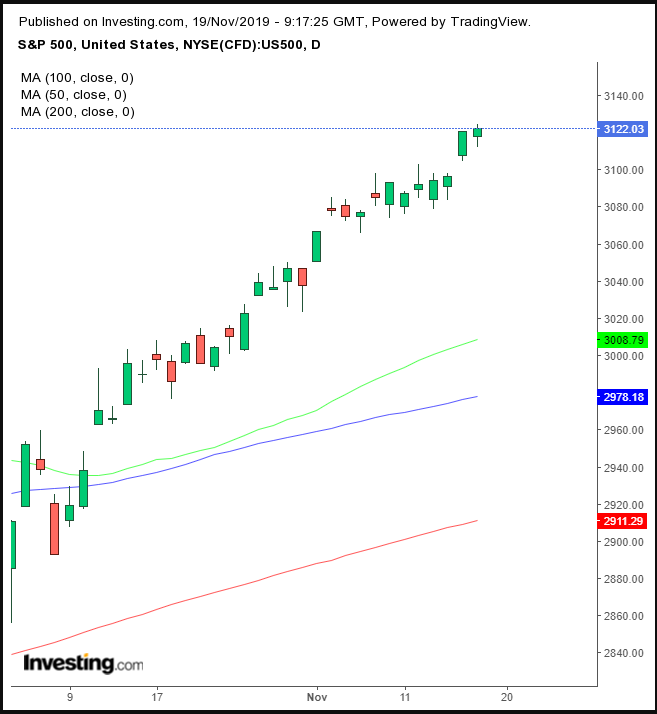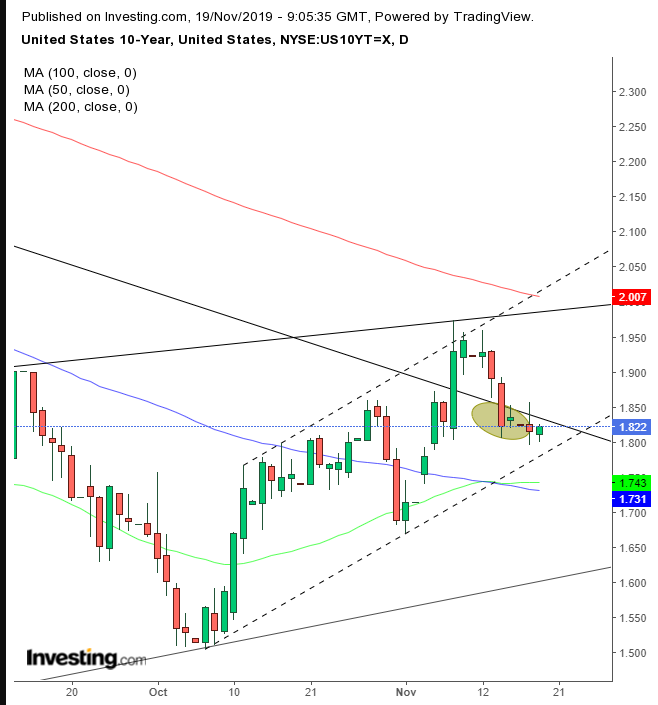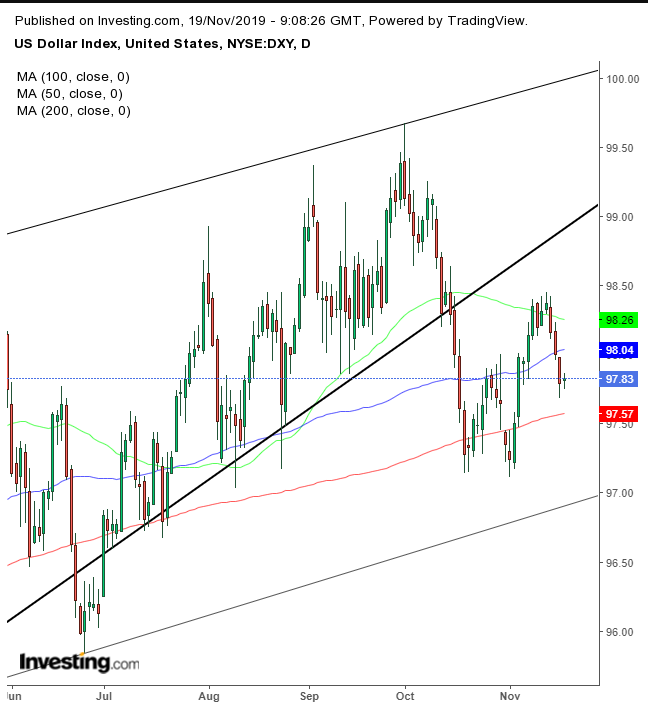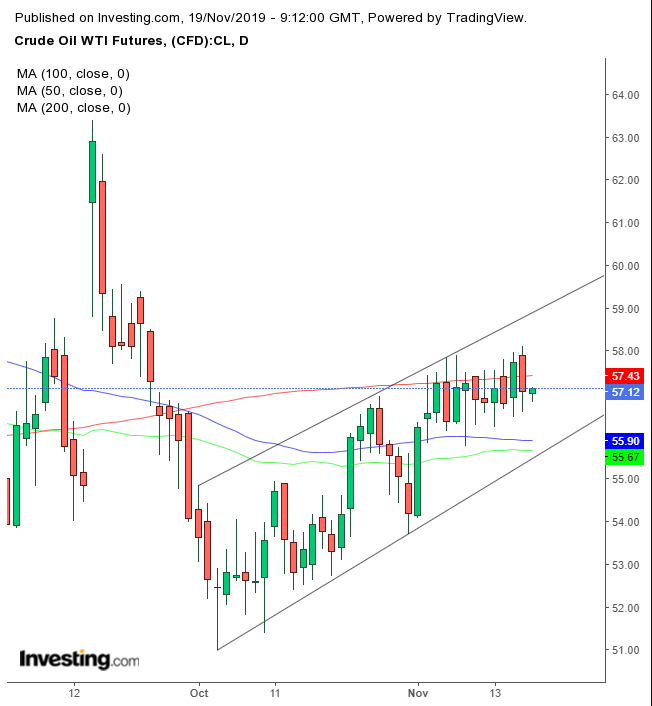- U.S. futures climb on new Huawei waivers; S&P 500 looks set for fifth consecutive record
- European stocks break higher
- Hang Seng outperforms after Alibaba closes Hong Kong listing order books earlier due to beefy demand
- WTI slips on expected stockpile build
Key Events
European shares broke higher and futures on the S&P 500, Dow and NASDAQ 100 looked set for a rally this morning, as traders welcomed news of U.S. authorities issuing a new 90-day extension allowing U.S. companies to do business with Chinese tech giant Huawei.
Japan, meanwhile, moved closer to its own first phase-one trade deal with the U.S., as the local parliament passed measures to cut tariffs on goods including U.S. farm products and Japanese machine tools.
Contracts on the Russell 2000 wiped out the losses suffered by the small-cap index on Monday—when the other three majors were hitting new records—while SPX futures signaled the underlying benchmark could score a fifth fresh record later today.
Europe's STOXX 600 climbed with the travel and mining sectors.
In the earlier Asian session, Japan's Nikkei 225 fell 0.53% while China’s Shanghai Composite climbed +0.85%.
Hong Kong’s Hang Seng (+1.55%) once again defied continuing civil unrest to outperform its regional peers, further recouping some of last week’s 4.8% drop. Here, Alibaba (NYSE:BABA) was reported to be closing its order books on its secondary listing earlier than scheduled, a sign that demand is stronger than expected.
Global Financial Affairs

U.S. equities eked out another record on Monday, as news of a new waiver on the U.S.'s Huawei ban offset reports that Beijing was skeptical about reaching a broad deal with Washington anytime soon.
Real Estate stocks (+0.54%) outperformed alongside Consumer Staples shares (+0.52%), while Energy (-1.22%) stocks were the main drag on the S&P 500, falling almost four times harder than the second-worst performer—Industrials, -0.38%—an indication that investors are losing heart about global trade getting back on track and kickstarting demand for fuel.
However, it should be noted that a parallel rebound in Treasury yields strikes a note of optimism.

Technically, yields on 10-year bonds found support by the bottom of their rising channel.

The dollar also bounced back after whipsawing as President Donald Trump tweeted he discussed USD strength and negative interest rates with Fed Chair Jerome Powell. The Fed said Powell’s remarks were “consistent” with his recent public comments. Technically, the greenback may have found support above the 200 DMA, lending additional support to the bottom of a rising channel.
In other FX markets, the pound mostly maintained gains of an upside breakout of a bullish pattern, ahead of the first televised general election debate, pitting incumbent Prime Minister Boris Johnson against Labour leader Jeremy Corbyn.
Conversely, the Australian dollar fell after the minutes of the Reserve Bank of Australia's last policy meeting showed there was a case for cutting rates.
The Japanese yen fluctuated along a path to repeat last week’s rally.

In commodities, oil dropped after U.S. stockpiles were forecast to expand by 1.5 million barrels. Technically, the WTI price is resisted by the 200 DMA for the twelfth day, within a rising channel since October.
Up Ahead
- Corporate earnings coming up this week feature consumer brands including: Home Depot (NYSE:HD), TJX Companies (NYSE:TJX), Target (NYSE:TGT), Macy’s (NYSE:M) and Foot Locker (NYSE:FL).
- U.S. economic indicators due for release include housing starts on Tuesday and initial jobless claims on Thursday.
- The U.K. holds its first televised leadership debate before next month’s election on Tuesday.
- Federal Reserve speakers this week include district bank presidents John Williams, Loretta Mester and Neel Kashkari.
- On the other side of the Atlantic, European Central Bank speakers include President Christine Lagarde, Bundesbank chief Jens Weidmann, along with Yves Mersch, Luis de Guindos, Pablo Hernandez de Cos and Philip Lane.
- Chinese officials announce prime loan rates, a benchmark for borrowing costs, on Wednesday.
Market Moves
Stocks
Currencies
Bonds
Commodities
